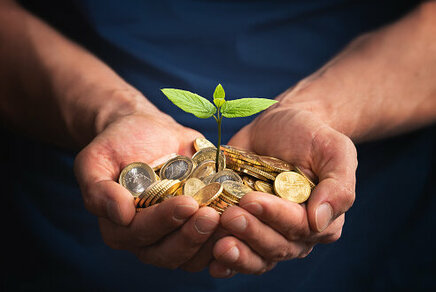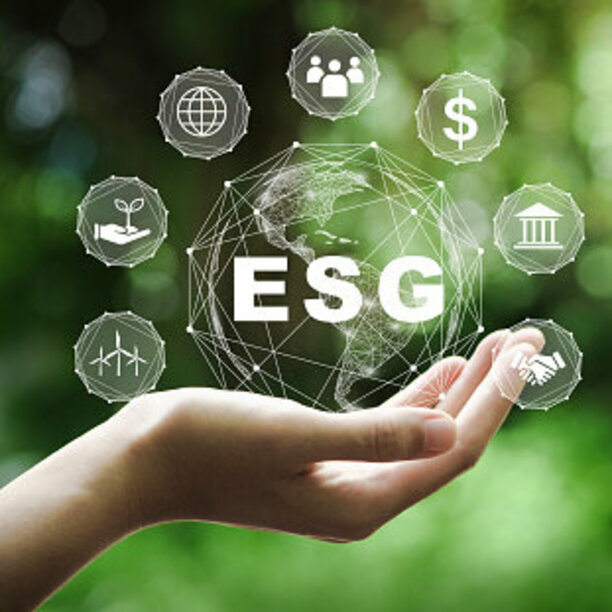“We need a new, inherently sustainable financial system for the climate transition”
In addition to technical solutions, young scientists at TU/e, such as Clara Caiafa and Willem Klok, are specifically investigating the socioeconomic or financial aspects of the climate transition. A two-parter on climate research at our university.
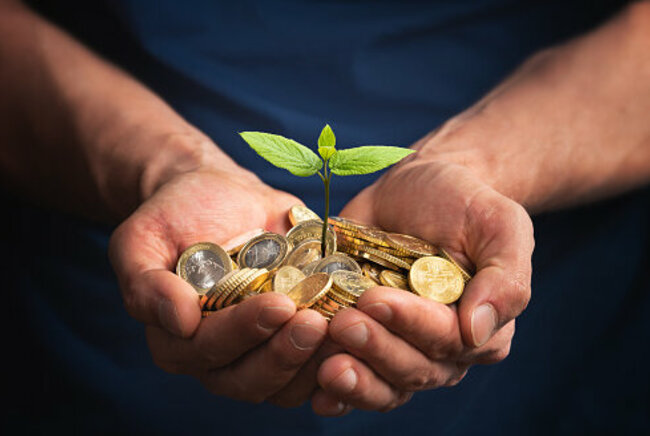
On the occasion of the UN Climate Change Conference (COP28) in Dubai, we highlight two studies by young TU/e scientists who are using their technical backgrounds to research the meaning of the climate transition at a societal level. In part one: PhD student Willem Klok investigates a transformation of the financial system.
Now that the question is no longer if but how we can undergo the transition to a more sustainable world and society, there is ever more room for research at the intersection of technology and society. After all, what is the point of wonderful green technology if people do not embrace the new solutions?
Incentives and barriers
This is precisely why Willem Klok of the Technology, Innovation and Systems group is investigating which incentives in the current financial system are a barrier to change, specifically in relation to the climate transition.

“While studying Mechanical Engineering and later Innovation Sciences, it dawned on me that many technical solutions are already being developed for the transition, such as in the field of green energy. We’re already pretty far along with that. And these technical developments to make the world more sustainable are going faster and faster,” says Klok.
“That’s why I went looking for the fields with barriers that are – unconsciously – holding back the transition. I wanted to delve into the financial system after graduation.”
Financial research at a technical university
Klok is pleased with his PhD position in Floor Alkemade’s group. “It really is a unique opportunity to be able to dive into financial systems and mechanisms as an outsider and an engineer. From this unique position, I can ask questions that someone traditionally trained in finance would never think of or that a professor might not see anything in. Indeed, I had noticed that real changes in systems are often initiated by relative outsiders, as described by Richard Hamming.”
Systemic change is often initiated by relative outsiders.
Willem Klok
He has been working on his PhD for a year and a half now and, thanks to his literature review, Klok has gained a pretty good idea of the problems in our financial system. “The money to make the transition possible is out there in the world, so that’s not the problem.”
“Where a problem does lie is that investors always look solely at financial returns. This seems to be the only consideration behind their choices. So, if they can choose between a six percent return with no positive impact on the climate or four percent with that impact, they almost unanimously choose the six. Hardly any value is placed in the impact of the investment.”
Examples of situations in which companies want to take a more sustainable path but are held back by financial considerations also occasionally make the news, such as when Shell’s board of directors wanted to go green and shareholders prevented it. Or how the CEO at Danone, who also opted for sustainability at the expense of a portion of the returns, was fired. A positive exception to the rule is the pension fund ABP, which actually chose an investment strategy without fossil fuels.
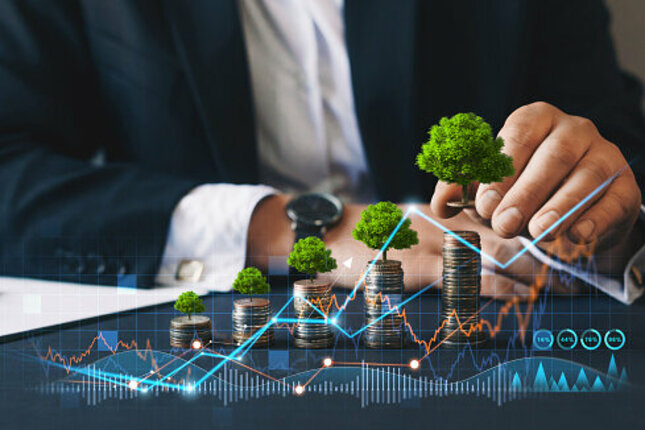
The financial system must change
As mentioned earlier, major societal transitions do not align with the matters that are most highly valued in the financial system. “There are ideas about how to change the financial system in order to embrace and accelerate the transition,” says Klok.
“The first approach maintains the current system. In this case, risks and opportunities related to sustainability are considered in the non-financial side of decision-making.”
Dominant candidate
“By integrating these risks into their decision-making, investors can reduce their losses or increase their profits while creating a more sustainable economy. I would say that this is the dominant candidate for the transition for now.”
This approach involves labels (see box) that indicate the sustainability costs and risks associated with certain investments so that companies and investors can demonstrate that they are investing sustainably and thereby gain or retain the favor of consumers and the government.
“As an example, you can then arrive at a situation in which investments in the fossil industry are worth less in the long run, so the investor wants to be sure that he is not putting money into that. Such a label can ensure that,” Klok explains.
“Or an investor will choose green energy or recycling because they have the right label and he or she expects a lot from them. A sure choice supported by the right labels. Policymakers and governments can also start using different tax rates for green investments to encourage them.”
Fundamentally, the consideration in this approach remains a financial one: which investment provides me with the greatest guarantee of a positive financial outcome?
Inherently sustainable
Another route is possible, but it really means a revolution of the existing financial system. Klok: “Yet herein, I believe, lies the real gain: a financial system that is inherently sustainable. In this, investors would no longer feel responsible only for their financial returns but also for the impact created with their investment.”
“In doing so, investors who are eager to make a positive impact with their investment would be assisted in their goals, whereby an investment with a lower financial result would still have the most ‘value’ due to the corresponding impact. This approach certainly doesn’t have the upper hand yet but is gaining popularity, especially among younger investors. They accept a lower profit in euros in exchange for green or social impact, for example.”
Impact can provide more value than money alone can
Willem Klok
A financial system that revolves around impact
When asked which approach Klok thinks is the most promising, he does not hesitate. “While the first approach is certainly useful and necessary, especially in the short term, I don’t think that it’s a sustainable solution. The reason for this is that, according to the first approach, the system must meet three conditions: every other value that is not financial must be priced (1) and regulated (2) on a global scale (3). Three things that I think will never happen, especially in more subjective and culturally determined areas such as social equality. Because how can you ever put an absolute value on that?”
“That’s why I would like to explore the second approach further. If an investor is already investing sustainably according to their own convictions, all you need is to meet those three conditions.”
Examples include Triodos’ investment funds, where investors are kept informed about the impact of their investment on climate and social issues.

How to communicate impact
Klok: “The major challenge in growing the number of investment opportunities that fall under that second approach – currently a niche – is finding new methods and manners to communicate impact. I’m not talking about ESG ratings (see box) because those are based on the goals of the current system.”
“I’m talking about valuable feedback on impact in the form of, for example, videos or anecdotes from stakeholders involved. This has to be valuable to both individual and institutional investors. But making that concrete and exploring what is valuable is another investigation.”
“That’s why I will model both routes: to show what consequences choices for a new system can have and to identify the feasibility of different solutions and approaches. In doing so, we can gain more concrete insights that we can share with policymakers in the financial sector.”
VN-klimaattop artikelen
More on Sustainability
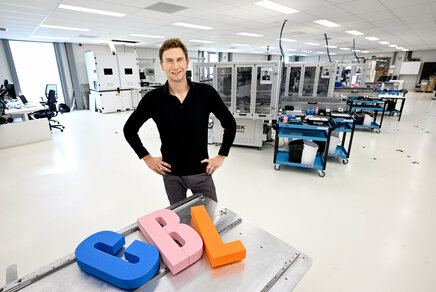


Latest news
